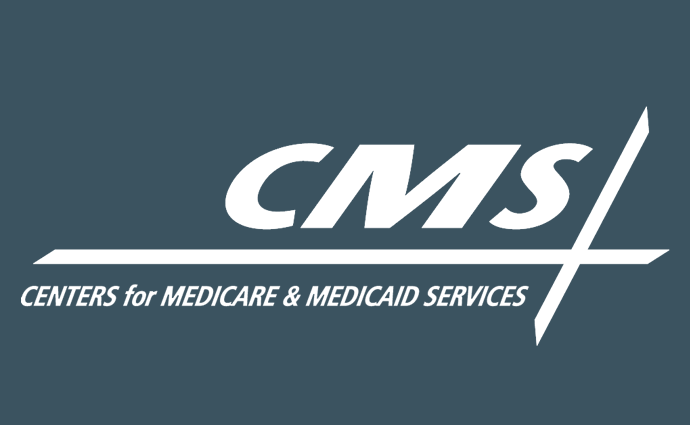CMS OKs Subscription Model in LA to Lower Hepatitis C Drug Costs
Louisiana aims to decrease hepatitis C costs with a newly approved subscription model that allows the state to purchase an unlimited amount of hepatitis C drugs and pay a fixed amount over a period of time.

Source: CMS
- CMS recently approved Louisiana’s subscription model for hepatitis C therapies in Medicaid, which would allow the state to negotiate supplemental rebate agreements from prescription drug manufacturers.
The state’s newly approved Medicaid State Plan Amendment will first target antiviral agents for hepatitis C, with the goal of eliminating the virus.
“The high cost of prescription drugs is one of the greatest challenges in our healthcare system, and Louisiana’s innovative approach to leveraging a subscription model to promote access to hepatitis C therapy is a great example of how states can lead in designing solutions,” CMS Administrator Seema Verma said in the announcement.
The model follows a similar concept as Washington's new Medicaid State Plan Amendment, which CMS approvedearlier in the month. Washington is also using a subscription model for hepatitis C drugs.
Louisiana’s model, however, establishes a supplemental rebate agreement for hepatitis C therapies. The parties will enact the agreement through a modified subscription model, a strategy that is rising in popularity among state Medicaid programs.
READ MORE: CMS Approves WA Value-Based Purchasing Plan for Hepatitis C Drugs
The state of Louisiana will work with Asegua Therapeutics to provide hepatitis C treatment, in a partnership that was announced in April.
Per the Louisiana Department of Health’s (LDH) press release, under the new state plan amendment, the state will use Asegua’s direct-acting, antiviral generic drug, Epclusa (sofosbuvir/velpatasvir), to treat patients in Medicaid and the prison system. The state has unlimited rights to use the product and the cost is capped and paid over time.
These supplemental rebates are free from the “best price” rule, which requires that manufacturers offer drugs to Medicaid programs at the lowest rate they have negotiated with other consumers.
In addition to offering the medications, LDH will be working with the Louisiana Department of Corrections to screen and treat hepatitis C in the prison systems and continue care once prisoners are released.
“The Department of Health continues to implement an elimination plan that engages partners across the state to educate the public on the availability of a cure and reach out to high-risk populations for screenings; connect people living with hepatitis C to care; expand provider capacity; and establish partnership across the state to eliminate hepatitis C in Louisiana,” the LDH press release states.
READ MORE: Majority of States Have Committed to Value-Based Care, Payment Reform
The model will run for five years, with the goal of treating at least 31,000 hepatitis C patients and virtually eliminating the disease by December 2024.
The model is particularly a victory for the state due to its financial struggles.
The Drug Pricing Lab at Memorial Sloan Kettering Cancer Center informed Rebekah Gee, MD, the secretary of the Louisiana Department of Health, that the price to cover hepatitis C costs for the entire population would be around $760 million, which is more than the state’s budget for kindergarten through high school education, Veteran’s Affairs, and Corrections altogether.
The state explored value-based solutions but found that these would not result in sufficient savings to justify the high price of hepatitis C drugs, which are about $80,000 per treatment.
In addition to these financial barriers, Louisiana also has a “disproportionately infected population,” according to Gee.
READ MORE: ACOs Call for Transparency in CMS Alternative Payment Model Design
Louisiana’s search for a solution stirred up a national dialogue around innovative ways to resolve high drug pricing and high demand. In particular, the state’s search for a solution was a major part of a recent National Governor’s Association conference.
Out of the conference, the National Governor’s Association issued a report containing nine distinct strategies to tackle pharmaceutical access and high drug prices. Chief among the governors’ solutions was a “Netflix” subscription model or alternative payment model mechanism in which the state pays a set cost over time for unlimited product.
The governors also suggested:
- Establishing a Medicaid spending cap that allows for negotiation of lower prices if the spending exceeds the cap
- Excluding certain drugs from Medicaid coverage and opting out of the Medicaid Drug Rebate Program (MDRP) to raise states’ negotiating power
- Purchasing pharmaceuticals in bulk to lower price
- Arranging value-based contracts that include value assessments
- Using the 340B Drug Discount Program to contract with covered entities that will increase discounts for prison systems
- Invoking Section 1498 of Title 28 of the United States Code (USC), under which states might be able to trade the use or acquiring of patents for “reasonable and entire” payment--this would need to be approved by the federal government
- Legally requiring price transparency from pharmacies, wholesalers, health plans, and pharmacy benefit managers
- Pursuing nominal pricing for correctional facilities--this would need to be approved by the Department of Health and Human Services and would allow prison systems to be exempt from the best price requirement in order to have more negotiating power
“I am optimistic that Louisiana has found a win-win approach to pharmaceutical pricing that is different from the typical price-per-cure approach,” Gee wrote. “Our journey has included unprecedented collaboration and contributions from governors, other state and federal government partners, the pharmaceutical industry, nonprofits, philanthropic organizations, policy experts, advocates, and academia. If successful, it could inform pharmaceutical purchasing in the setting of public health crises. We hope this new model will make hepatitis C elimination a reality not just for Louisiana but also for our nation.”
With its subscription model approved by the CMS, Louisiana and Asegua can start meeting the need of around 90,000 individuals with hepatitis C in the state. The model went into effect on July 1.
